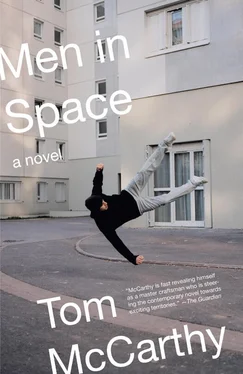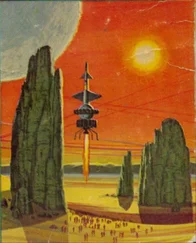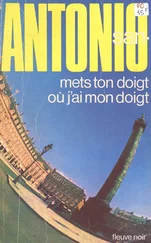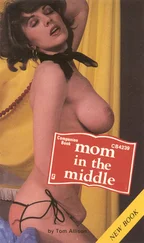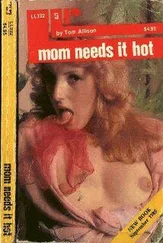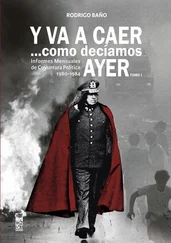“Oh Anton. A copy! Not a likeness: a copy! An identical copy.”
“And that’s what the police will …”
Ilievski’s standing back and smiling, arms resting crossed on his wide chest.
“But that’s genius! How did you think of that?”
Now Ilievski’s face clouds over as he shrugs:
“Instructions. You know …”
In a white Sofia classroom, Ilievski and his cars, his men, his cashmere coats all shrink down to small dots on Toitov’s board, as far removed from any pivotal point as distant moons from the planets they orbit. Anton feels, just for an instant, very close to him.
“That’s why I’m asking you,” says Ilievski, looking out across the lawn. “You know art people; you go to all the galleries …”
“Well, I don’t really go to all of them. I was just by one, half an hour ago, on my way …”
“That guy we met outside Blatnička, the art journalist …”
“Which one?”
“The English guy. Your friend. Your neighbour. Teaches at AVU.”
“Oh, Nick. He’s moved, but we still see each other. But he doesn’t really teach there: what he does is he …”
“Well, whatever. I’m just saying that you’re better placed than Janachkov or Koulin to deal with this one.”
“Well, if you put it …”
“I do, I do put it that way. Got a cultured man on my team; got to use him before he disappears to America. You’ve already got the visa, no?”
“Yes, but Helena won’t go, not without …”
His voice trails off, and the two men stand in silence for a while before Ilievski resumes:
“I want you to go and find someone to copy the painting. Don’t tell them what it is, but make sure they don’t shout about it all the same. I’ll pay fifty thousand crowns, and I want it done as quickly as possible.”
“OK.”
“Good. Rambo!”
Anton turns around and looks over to the house. The long window panes are caked with grime, but inside he can make out hardened lumps of clay sitting abandoned on wooden trestle tables at whose feet lie buckets of dried-up plaster, broken cans and fragments of iron casting. On the main floor, sculpture parts that have found their way in from the garden have been conjoined with other sculpture parts, welded together in new configurations in which athletes’ arms and workers’ thighs segue into weapons which in turn become sections of some larger, vaguer mechanism slowly forming on the workshop floor: a strange assemblage that suggests a figure wired into some kind of capsule. The figure’s head is resting against a thick horizontal column that looks like the roller in the typewriter Helena writes all those letters on. Rambo starts barking. Anton and Ilievski turn round: a woman’s walking towards them from a dirt track next to some allotments — an old woman, moving slowly, carrying a bucket. Rambo bounces up to her; she stops, strokes Rambo’s head, then continues towards them.
“Good day.” She sets down the bucket.
“Good day,” they answer in unison, like schoolchildren.
“Are you looking for someone?” She’s got no teeth.
“No,” replies Ilievski, looking back towards the lawn. “We were looking at these sculptures.”
“They belonged to Jiří Ondříček. That’s his house. He collected them. He’s dead now.”
“When did he die?”
“Last year.” The woman scrapes her stubbly chin before adding, redundantly: “He was an artist.”
Ilievski snorts again. “We could’ve got him to do it,” he says to Anton in Bulgarian. Anton smiles. The old woman tenses up.
“What’s that? What did you say?”
“Who owns the house now?”
The woman shrugs. Anton’s looking over her shoulder at the allotments. The woman says:
“There’s nothing over there. The island doesn’t join onto Thomayerovy Park: you have to go back round the other way. Past the shipyard and the metro.”
“We’ll just go and walk the dog down there.” Ilievski and Anton move on. The woman stands still, following them with her gaze. Foreigners.
“She probably thought we wanted to buy the place,” says Anton, skirting round a puddle.
“Not a bad idea. Prime property value. A hotel …”
They walk past the allotments, to the island’s edge. An inlet cuts in from the Vltava; on the far side are bare willow trees, then Thomayerovy Park rising up to Libeň. Rambo dabs and laps at the still water. Anton looks back towards the house, the lawn, the sculptures. He pictures this Jiří Ondříček cutting and welding, trying to synthesize something new and miraculous from all this debris, some vision he could vaguely make out hovering round the edges of his own, but which he never got to realize or communicate …
“If the artist’s dead, he can’t explain what he was doing,” he muses. Ilievski says:
“It’s possible. A bit extreme. I wouldn’t want …”
His voice trails off again. He’s watching the willow branches lightly ripple. He watches them intently, then snaps out of it and says:
“Anyway. I want it done as soon as possible. The painting’s at my place. You can come and get it as soon as you’ve found an artist to make the copy. Here,” he pulls a wad of notes from his coat pocket, hands it to Anton, then checks his watch, “are twenty-five. Rest on completion. I’ve got to run now. Rambo!”
Anton watches him walk back towards the car market. There’s a set of beehives beside the allotments. All the bees will be inside now, sleeping out the winter, just like Uncle Stoyann’s bees. Anton would help him collect the honey, drawing it from the trays of moulded wax they slid out of the hives one by one. They’d slice the hardened wax roof from each tray to let the honey out, then fix the tray to the arm that span around inside the plastic tub. Centripetal force creating centrifuge. You turned a handle on the tub’s exterior and the tray orbited inside faster and faster, the outward pressure generated by the motion sucking the honey from the combs, so hard that it shot out, hit the tub’s walls and trickled down towards the bottom. Simple engineering principles: a perfect little system with its pivotal point set at the interface of handle-shaft and turbine, and its moment, consequently, strong. Only, in engineering terms, what he and Uncle Stoyann were performing was a feat not of construction but of separation: trays from hives, bees’ labour from bees, honey from each wax cell into which it had been stuffed. Anton remembers seeing one bee who’d clung to his comb as it was slid out and mounted in the tub, then fallen into the vast ocean of honey and drowned. He recalls how gravity had dragged the lifeless body halfway down, then stopped it at the point at which the resultant of the set of vectors in the semi-solid mass had become zero. On this bright December day, he’ll carry the image from the island with him, carry it around the golden city: a bee, suspended in a vitreous yellow block, buried and floating at the same time, quite alone.
* * * * *
… by means of a Ruble drop transmitter operating in the VHF part of the spectrum. This device is crystal-controlled, to prevent drift. Equipped with single-frequency-receiver circuitry and multiple-tone filter, it can be activated and deactivated remotely from the listening post, whose holding signal keeps the drop transmitter on air for no longer than it needs to be, thus avoiding battery run-down, or at least greatly deferring it. Colleagues posing as workmen had installed a repeater in a fire hydrant outside Subject’s house 2 [two] days prior to stake-out, affording me a listening range of 1/2 [half] a kilometre. The drop transmitter’s frequency was set at 91.7 [ninety-one point seven] MHz, just below that of Radio Jedná (formerly Radio Stalin), thus ensuring that its output would be occluded by the commercial broadcaster’s output on all non-modified receivers. In this manner, I was able to obtain a strong signal, with good signal-to-noise ratio, while ensuring that this signal remained snuggled. I trust I am not being immodest in stating that I am good at this: I can always get a signal. Indeed, it was made clear to me that it was for this reason that I was given this particular assignment. I must, however, register my anxiety that if the use of Ruble drop transmitters is phased out, as planned, the quality of future surveillance operations will decrease. I do not think I am alone in fearing this.
Читать дальше
